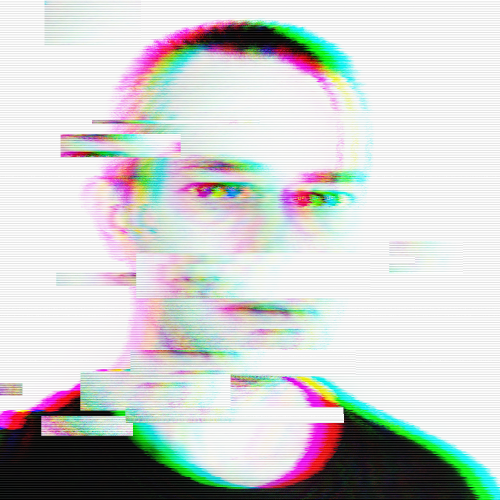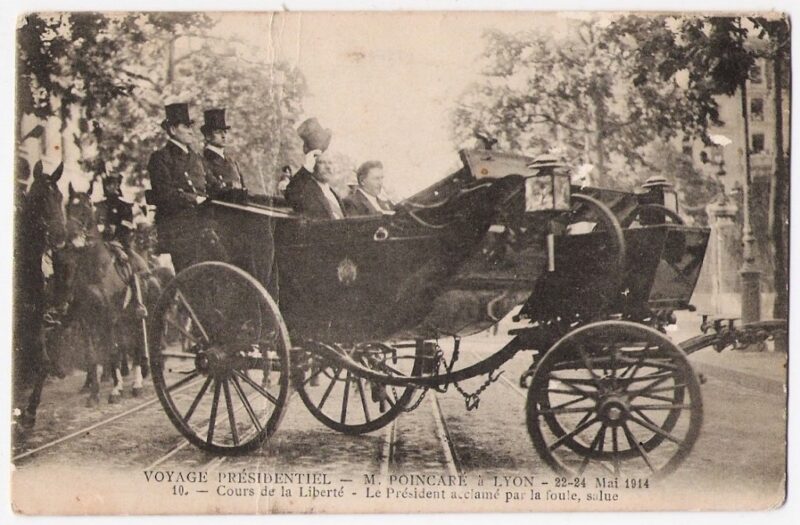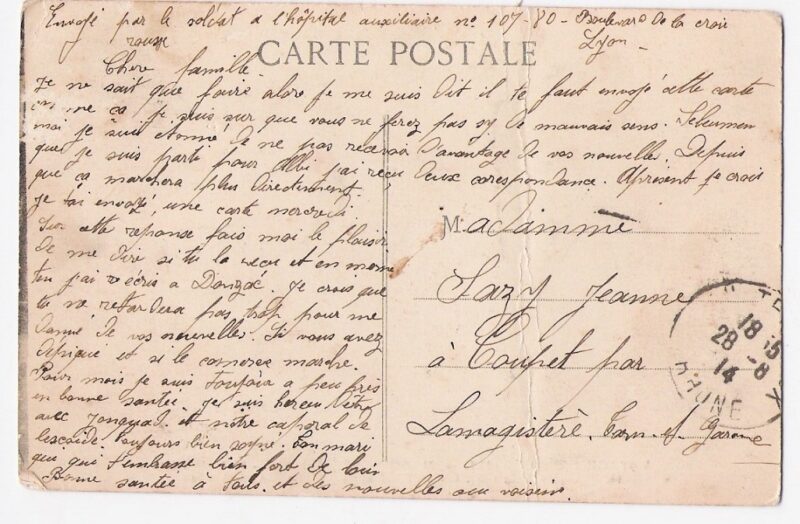Today, a postcard showing the visit of President Poincaré to Lyon in May 1914.
One of the fascinating things about these postcards is to see how they were used at the time. Here, a commemoration of a presidential visit. I’m tempted to say that they served as the news, but I’m not too sure that’s applicable. Of course, the immediacy of information is a fairly recent phenomenon (although special editions of newspapers are not a new thing), but here we are talking about an event that occurred in May, in a postcard sent at the end of August. So I’m leaning towards the commemoration of an event. A presidential visit was a big deal before the age of planes.
I was going to say that I don’t know anything about this presidential visit, but sometimes the internet has good surprises for us. Indeed, I’m learning while typing these lines that it was a visit to the International Urban Exhibition of Lyon which took place during the year 1914.
So if the front of the card has no connection with the First World War, things are a bit different in the back.
The postcard is dated August 28, 1914, three weeks after the declaration of war by Germany to France. We find Jean Sazy writing to his wife Jeanne. He is in a hospital in Lyon, but he mentions being in good health. I assume that he’s there for a series of medical tests after his mobilization or something of the sort. His location in Lyon suggests that his regiment is stationed there while waiting to be sent to the front. We are still quite far from trench warfare. Battles were fought mostly on the border and in Belgium during the first days of the war. However, five days earlier, the defeat at Mons triggered the beginning of the Allied retreat to the Marne and the beginning of the invasion of Northern France by the German armies.
The content of this card is still very remote from all that. Jean seems mostly bored in Lyon and almost complains about not receiving enough news from his family. As I mentioned in the previous card, although he will never tell the details of his life as a soldier, the slow evolution of his tone in his writings is as telling as it is sad.
Here, this is one of his first cards, he is only a soldier by status and has not yet met the front and its battles. That will come. Too soon.
I’m transcribing the content of his card here, not always easy to read, even a harder translation. I have corrected his most obvious mistakes, but some terms remain strange. Are they expressions that have become obsolete nowadays? Are these terms that I can’t decipher because of weird writing or spelling mistakes? Not always sure.
Sent by the soldier from the auxiliary hospital n° 107-80 – Boulevard de la Croix-Rousse Lyon
Dear family,
I don’t know what to do so I said to myself that I should send this card to be sure you won’t worry anymore. However, I am surprised not to receive more news from you. Since I left for Albi, I only have received two pieces of correspondence. From now on, hopefully, it will be more direct.
I sent you a card on Wednesday. In your next mail, please tell me if you have received it, and at the same time, I have written to Donzac (1). I hope that you will give me some news as soon as possible. If you have “défriqué” (2) and if business is going well.As for me, I am pretty much in good health. I am happy to be with Jonquad (3) and our corporal de Lescaide (3) is always looking neat / well-taken care of (4).
Your husband who is sending you a big hug from afar.
Hoping good health to you all and please say hello to the neighbors from me.
Notes:
- Donzac is a small village in the Tarn-et-Garonne department just a few kilometers from Jean’s home. He must have family there.
- I have never heard the term “défriquer” before. Is it an old term that has disappeared (but I can’t find anything on the internet) or a weird mistake, either on his part or mine? Maybe “défricher”, meaning “clearing land”?
- Not too sure of the exact spelling of the two soldiers’ names (Jean must not have been too sure either). Probably Jonqua instead of Jonquad. On the website commemorating soldiers who died for the country, I found three Jonqua coming from Tarn-et-Garonne and who died during the war. Two of them come from villages not far from Jean’s: Gabriel Jonqua, who died at age 41 in December 1918 from the infamous flu of the time, and Clément Jonqua, who died at 27 in October 1916 in the Somme (most certainly during the terrible battle of the same name). The third Jonqua comes from a little further and died in Belgium five days before this card was posted. So it could be one of the first two.
I can’t find anything about the corporal. Maybe the name is not spelled like this at all, maybe he survived the war. I don’t know. - The French term here is “soigné” which has several meanings and they all could fit there. It could mean “cured,” “cared for,” or “looking neat”. All of them could work here. Especially if the corporal has a particle name, which means he’s from the aristocracy, which still had a certain aura to a certain part of the population, especially the common rural people.
Discover more from liminal web
Subscribe to get the latest posts sent to your email.



